We're Here Drag Star Eureka O'Hara Comes Out as Trans: 'I Know Who I Am Without Question'
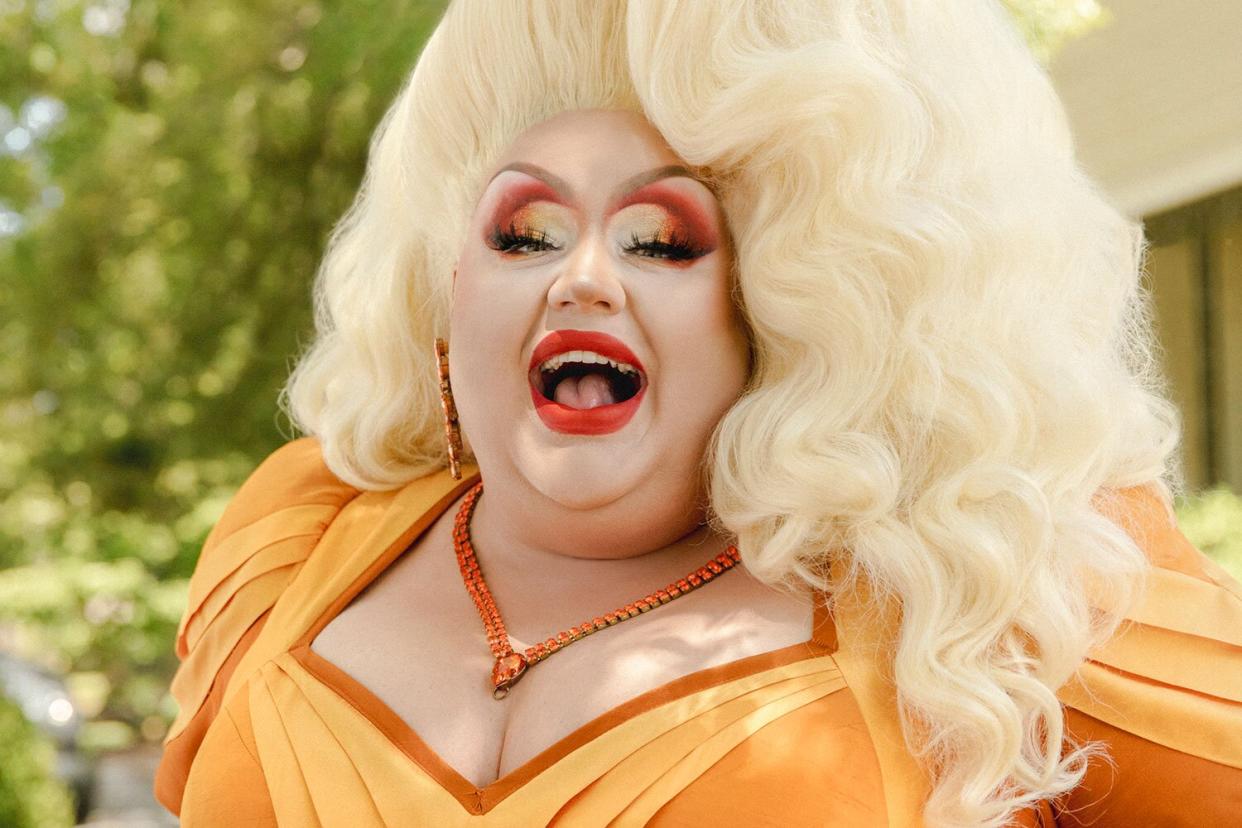
- Oops!Something went wrong.Please try again later.
Johnnie Ingram Eureka O'Hara
Eureka O'Hara would like to reintroduce herself.
After years of struggling with her gender identity, the RuPaul's Drag Race alum is a transgender woman.
"I'm blessed now," Eureka, 31, tells PEOPLE exclusively, "because I know who I am without question."
It was because of her HBO show We're Here — on which she and fellow drag superstars Shangela and Bob the Drag Queen visit small-town America — that she decided to transition in the first place. And seven months after she made the decision to transition, Eureka is proud to share her story publicly for the first time.
"It's been really magical and it's been probably the easiest transitional and coming out journey that I've ever been on," she says. "I hope my story teaches people that gender is a journey, and we are ever-evolving people."
'It Just Clicked'
While filming the next two episodes of We're Here in Florida this spring, Eureka met two trans individuals (Mandy, who transitioned later in life, and Dempsey, a young trans girl) who inspired her to reexamine her identity.
"Hearing the story of Mandy regretting losing all that time — and all the regret and the pain that she was going through during the time of not fully being herself — was really important to me. When I left Mandy's house that day, I started spiraling. It just had me searching my mind, 'What is happening, what is going on?' Then I just answered myself: 'I'm trans. I'm a trans woman.' It just clicked," Eureka says.
She adds, "Now I'm at 31 years old, and I'm like, 'Well I don't want to be like Mandy and finally transition at 70 to be happy. I don't want to lose 40 years — I want to spend those 40 years happy.'"
In the early days of her transition, Eureka had a strong support system in place, including her drag mother Jacqueline St. James and her We're Here "sisters," Shangela and Bob.
And Eureka felt empowered to share her story — and take back her own narrative — on the show, as she has had several coming-out moments in her life. Ahead of this transition, Eureka previously identified as a gay cisgender man, then lived as a transgender woman from ages 18 to 22 before eventually identifying as non-binary.
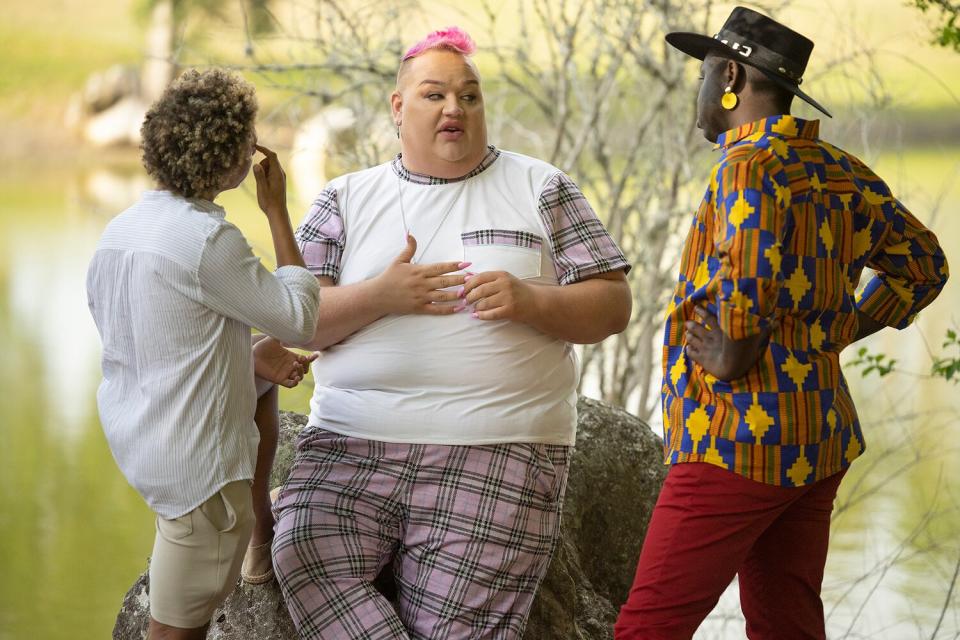
Greg Endries/HBO Eureka with Shangela (left) and Bob the Drag Queen
"I wanted to have the opportunity to tell the story with the show, because I was so impacted by Mandy. It was like I got to decide for the first time ever in my life how I came out, 'cause I never had that experience before," says Eureka. "I was always called gay before I ever even knew what gay was; when I wanted to transition before, I was told by the other people in my life and trans people that I was trans before I really understood what it was. This time it was like, I get to do it my way."
'I Would Cry and Pray to Wake Up a Girl'
Eureka's gender journey began when she was a child.
"From as young as I can remember, I just remember going to sleep, and I would cry and pray to wake up a girl," Eureka recalls.
The star has spent years contemplating her identity before finally transitioning this year.
"The problem in the past has been, there was always a question in the back of my mind: 'Is this really who I am?' And 'Did I give myself a chance as a young gay male?' was the question that I had from 18 to 22, because that was a lot of my parents' questions and therapists' questions, and a lot of people's opinions," Eureka says.
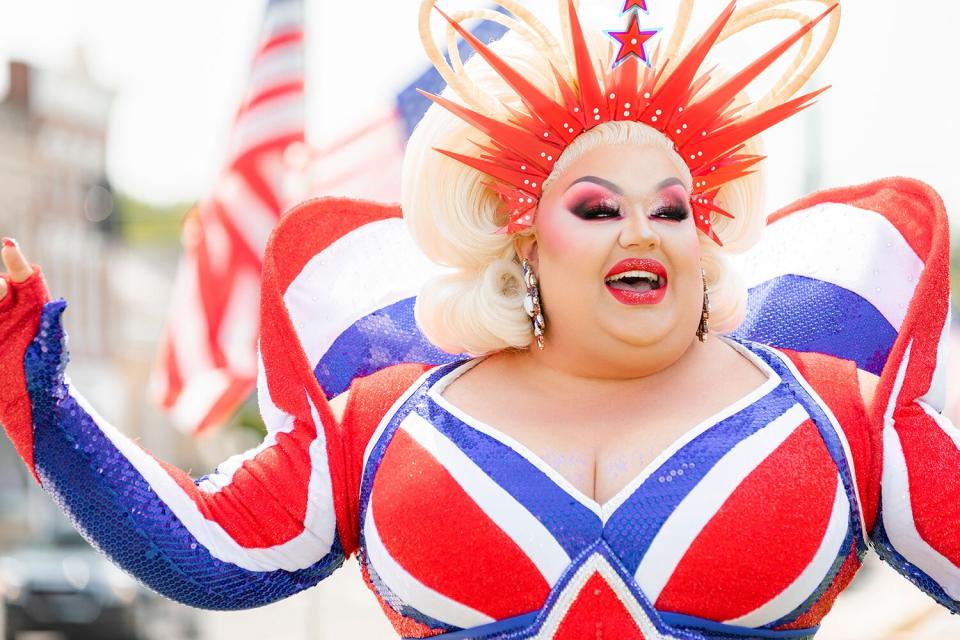
Johnnie Ingram Eureka O'Hara
Before embracing her trans identity, Eureka says she found solace in the drag community and onstage.
"Drag's been so important to me because that's where I was able to be a woman for so long. And it has just been a safe place for me to get to know myself," says Eureka, who rose to fame on seasons 9 and 10 of Drag Race before appearing on RuPaul's Drag Race All Stars last year. "It also taught me how to be confident, because the confidence that I learned in drag I was able to eventually start using in my everyday life."
Eureka says living as a non-binary person also helped her on her journey.
"I found contentment there for a while, but there was always been something missing," she says. "It's like I've been searching for something. I realized that it was me not allowing myself to be the woman that I am, out of fear."
'It's Hard Being a Woman'
Now, Eureka's facing her future fearlessly.
She is getting her gender markers changed to female and has legally changed her name to Eureka D. Huggard, taking her drag name (which was inspired by her mother, Ulrike) and adding a nod to her birth name (David Huggard).
Eureka has been on hormone replacement therapy for seven months and is also taking the steps toward a physical transformation.
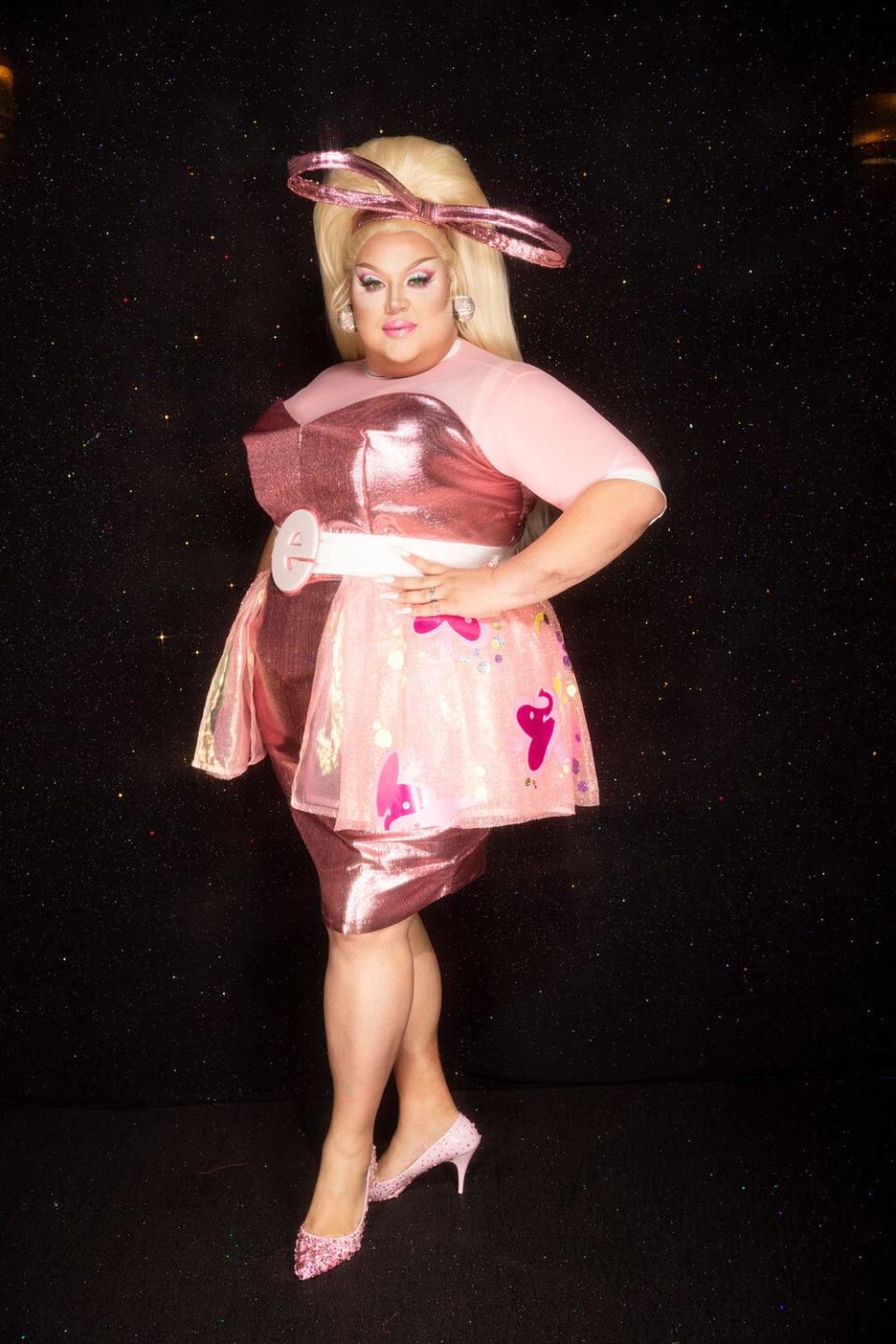
courtesy hbo Eureka O'Hara
"Every day, I'm becoming the woman that I strive to be — but I'm already that woman. It's just like any other female and any other person, I'm going to do what I need to do to feel even more comfortable in my skin," she says. "I want to have breast argumentation done. I want to have potentially facial feminization surgery. I'm not sure. I get really nervous about my face, you know what I mean? Cause I have such a pretty face already, so I don't want to mess anything up."
She adds, "I'm preparing my body and myself for surgeries in the future, too, because I do want to be the woman that I want to be. I've been losing weight and being more mindful of what I eat in my diet and have been taking care of myself health-wise, because I was told by a doctor that they wouldn't put me under at the size that I was. So that is also something that I'm working towards."
And Eureka sees parallels between her relationship with her image and cisgender women's.
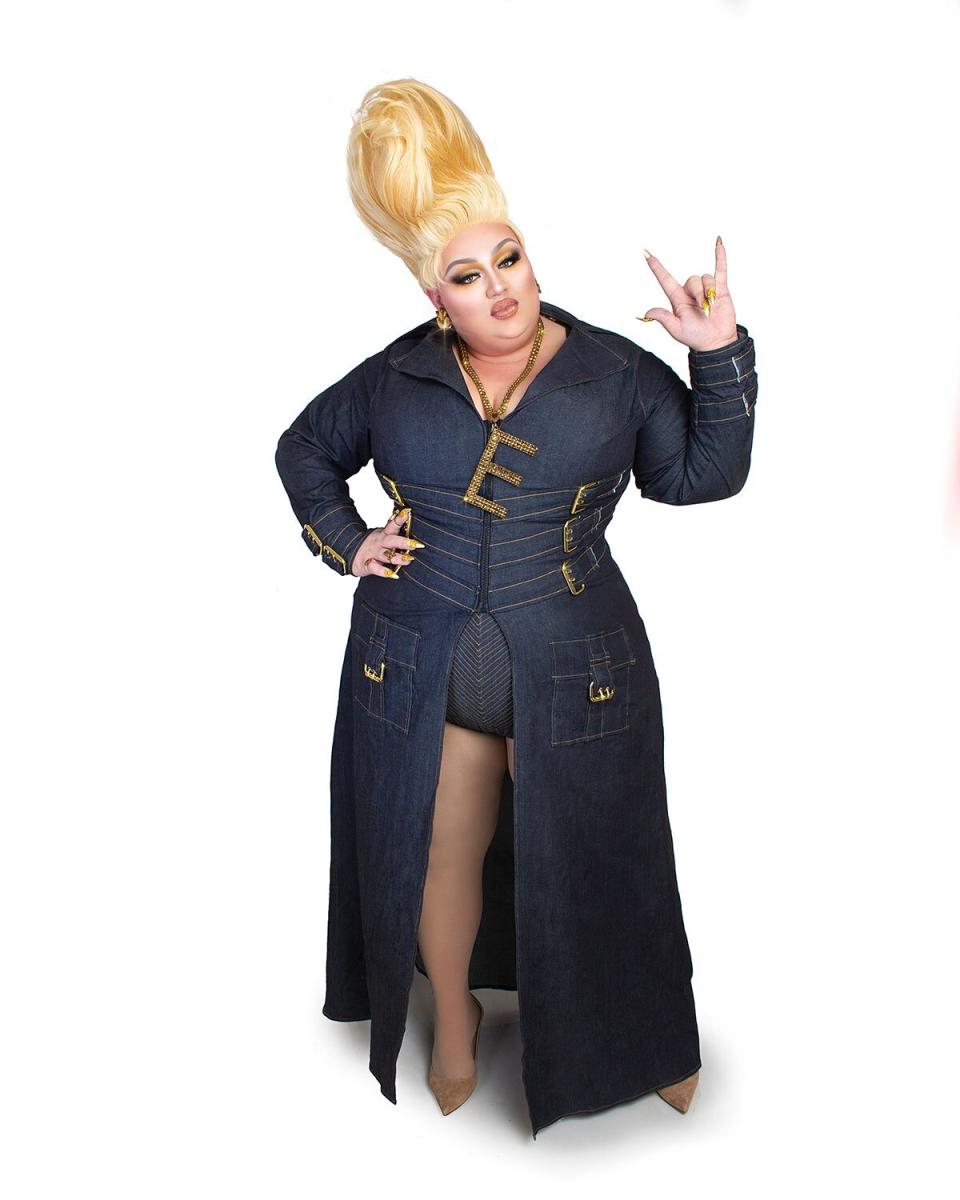
David Laffe Eureka O'Hara
"It's hard being a woman — that's the truth! It's even harder being a trans woman because you have to put in 10 times more effort to present female. It doesn't come as naturally," she says. "There's so many things that we have to do to ready ourselves for the ideal female visual that society wants to see so that we can feel accepted in society or in public. That's probably the hardest part of being trans."
While Eureka continues her physical transformation, she's gotten comfortable in her own skin.
"I understand that sometimes I don't fully look like a girl," she says. "I try to be patient with the outside world because at the end of the day, people that don't know us or who we are, they only perceive people as one of two things, and that's on the binary. Instead of getting upset with a stranger or letting it hurt me emotionally, I try to understand that it's OK that some days I'm not called 'ma'am' because maybe I'm not presenting as feminine as someone would ideally see a woman to be. It's more about me knowing who I am and me being OK with that. I think some trans people get to that point and some don't."
'People Are Rooting for Us'
As Eureka enters this next chapter of her life, she's documenting it with her new music video for "Big Mawma," which was informed by her journey and created by her production company, House of Queens.
"This was really inspired by Mandy's story and my own personal story. It was also kind of two versions of myself, this version of myself where I came out senior year and was accepted and loved; then there's this version of myself of what if I continued to live that fake life and took so long to be myself?" Eureka says. "But it just shows real versions of people like me and how hard it is, but also the unconditional love that we receive from others."
And it's that support that gives Eureka optimism in a tumultuous time, as drag queens are being protested and hate crimes against the LGBTQ community are on the rise.
"What gives me hope is that the harder bigotry and discrimination, the louder the people are that to fight and stand up and show up," she says. "People are rooting for us."

